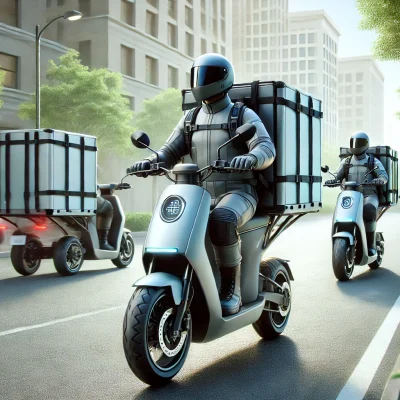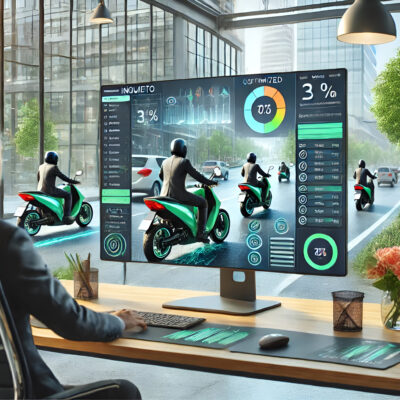The film industry, like other large industries and sectors, is beginning to incorporate electric vehicles in its shoots as a sustainable option for its productions. A change which caters for, amongst other issues, the growing environmental awareness and the need to reduce the carbon footprint in any activity. Film shoots involve the constant movement of both staff and materials and elements of all kinds. Furthermore, this change brings with it economic benefits to the producers.
Electric vehicles allow you to reduce the operating costs associated with fossil fuel. They also make the most of the advantages afforded by energy efficiency and the reduction of expenses related with the maintenance of conventional fleets. Furthermore, the use of environmentally friendly technologies can generate a positive image for film productions, attracting an audience which is increasingly concerned about the environmental impact of any activity.
In this way, the transition to electric vehicles in the film industry is not only a responsible response to current environmental challenges, but also a pragmatic strategy that merges sustainability with economic profitability. This change contributes to the construction of a film industry with raised awareness and more adapted to the standards of a modern world focused on environmental preservation.
Sustainable mobility, zero emissions
Electric vehicles stand out for their silent operation and as they do not emit polluting gases during use. The first of these features is especially important in film production where sound quality is crucial. Furthermore, by dispensing with the burning of fossil fuels, electric vehicles contribute significantly to more sustainable mobility.
- A few examples
Electric vans like the Maxus eDeliver 3 are the ideal choice for logistics in film shoots, constituting a key advance towards sustainability. Their versatile, environmentally friendly design adapts to mobility demands on sets, offering flexible performance, charging capacity and autonomy.
The Maxus eDeliver 3 not only reduces polluting emissions when moving about the set, but it also operates silently, integrating harmoniously into the filming environment. This option sets a standard for the adoption of clean technologies in film logistics, redefining mobility and promoting more sustainable production.
In turn, the Maxus eDeliver 9 offers, to those who need it, even more charging capacity than the Maxus eDeliver 3, redefining logistics in the film industry. This powerful, sustainable electric van offers an efficient solution for transporting bulky equipment on film shoots, highlighting its commitment to efficiency.
On the other hand, a flexible, sustainable option for the rapid movement of staff and equipment on set is the Silence S02 HS electric motorcycle. Standing out for its compact, emission-free design, this electric motorcycle offers an efficient solution for the film industry.
Energy efficiency and reduced costs
Electric vehicles are inherently more energy efficient compared to their counterparts with internal combustion engines. This results in a reduction in long-term operating costs for film productions. Although the initial outlay can be high (which can also be avoided with leasing), the savings on fuel and maintenance over time make electric vehicles an economical, sustainable option.
Fast charging technology for continuous filming
The fast charging technology of electric vehicles is a key factor that facilitates their integration into the film industry. Production teams can recharge batteries during breaks, ensuring vehicles are ready for use in a short period of time. This is especially beneficial on shoots that require constant mobility, allowing for more efficient logistics planning.
Promoting sustainability in the entertainment industry
The adoption of electric vehicles in the film industry goes beyond efficiency and savings. It also plays a crucial role in promoting sustainable practices and in raising awareness about the importance of reducing the carbon footprint. The visibility of these actions can inspire other sectors of society to follow suit, creating a positive impact on environmental awareness.
Collaboration with electric vehicle manufacturers
Collaboration between the film industry and electric vehicle manufacturers can lead to specific innovations to suit the requirements of the film industry. From vehicles adapted for transporting equipment to customised solutions for specific filming situations, this partnership can generate technological advances that benefit both the film industry and the development of electric vehicles as a whole.
The incorporation of electric vehicles in the film industry marks a significant step towards sustainability. As environmental awareness grows in society, more film productions are expected to follow this path, contributing to a greener, more responsible future. Sustainable film shoots are not only a trend, but a prevailing need in these times.





